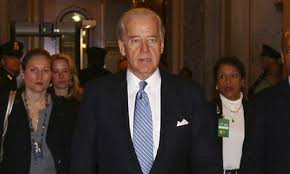Healthcare in the United States has long been a contentious issue, with numerous debates surrounding accessibility, affordability, and quality. The Senate’s recent passage of a comprehensive healthcare reform bill marks a pivotal moment in these ongoing discussions. This bill aims to address many of the systemic problems plaguing the healthcare system, bringing substantial changes that could have far-reaching effects.
Background of the Healthcare Reform
The journey to this reform has been long and arduous. For decades, Americans have grappled with the high costs of medical care, insurance coverage gaps, and inequitable access to services. Previous attempts at reform, such as the Affordable Care Act, laid the groundwork, but significant challenges remained. The new bill builds on these past efforts, aiming to create a more inclusive and sustainable healthcare system.
Key Provisions of the Bill
The healthcare reform bill encompasses several critical provisions designed to improve the system comprehensively.
Expansion of Medicaid
One of the most significant elements of the bill is the expansion of Medicaid. This provision aims to increase coverage for low-income individuals, ensuring that more people have access to necessary medical services.
Subsidies for Private Insurance
To help middle-income families, the bill introduces enhanced subsidies for private insurance plans. This measure is intended to make health insurance more affordable for those who do not qualify for Medicaid but still struggle with high premium costs.
Prescription Drug Pricing
The bill also tackles the issue of prescription drug prices. By allowing the government to negotiate prices directly with pharmaceutical companies, it aims to lower the cost of medications for consumers.
Impact on Individuals
The bill promises several benefits for individuals across the country.
Lowering Costs
With the expansion of Medicaid and increased subsidies for private insurance, many people will see a reduction in their healthcare expenses. This is expected to alleviate the financial burden on households, particularly those with significant medical needs.
Improved Access to Care
By broadening coverage and reducing costs, the bill aims to ensure that more people can access the care they need. This includes preventive services, which can help reduce the incidence of serious health issues in the long term.
Impact on Healthcare Providers
Healthcare providers, including hospitals and physicians, will also experience changes under the new bill.
Hospitals
Hospitals are likely to see an increase in the number of insured patients, which can reduce the amount of uncompensated care they provide. This could lead to more stable financial conditions for these institutions.
Physicians
Physicians may experience an uptick in patient visits as more individuals gain access to healthcare services. This could improve patient outcomes and enhance the overall efficiency of the healthcare system.
Economic Implications
The economic impact of the healthcare reform bill is expected to be significant.
Cost Savings
By reducing the cost of healthcare and prescription drugs, the bill could save billions of dollars in the long run. These savings can be redirected to other critical areas, such as education and infrastructure.
Job Creation
The healthcare sector is a major employer in the United States. Expanding coverage and services could lead to job creation within the industry, providing a boost to the economy.
Political Reactions
The passage of the bill has elicited a range of responses from political figures and parties.
Support
Supporters argue that the bill is a necessary step towards a more equitable and efficient healthcare system. They highlight the potential benefits for millions of Americans, particularly those who are currently uninsured or underinsured.
Opposition
Opponents, however, have raised concerns about the cost of implementing the bill and its potential impact on the federal budget. Some also argue that it may lead to increased government involvement in healthcare, which they view as problematic.
Public Opinion
Public reaction to the healthcare reform bill has been mixed. While many people welcome the prospect of more affordable and accessible healthcare, others are skeptical about the government’s ability to deliver on these promises.
Comparison to Previous Healthcare Policies
The new bill differs from previous healthcare reforms in several key ways. It builds on the foundations laid by the Affordable Care Act but introduces more aggressive measures to control costs and expand coverage.
Challenges Ahead
Despite its ambitious goals, the healthcare reform bill faces several challenges. These include political opposition, logistical hurdles in implementation, and potential pushback from various stakeholders within the healthcare industry.
Future Prospects
Looking ahead, the success of the healthcare reform bill will depend on its implementation and the ability to address the challenges that arise. If successful, it could serve as a model for future healthcare policies in the United States.
The Senate’s passage of the landmark healthcare reform bill is a significant achievement that has the potential to transform the American healthcare system. While challenges remain, the bill’s provisions offer hope for a more equitable and efficient system that can better serve the needs of all citizens. As the nation moves forward, the focus will be on ensuring that the promised benefits become a reality for everyone.




